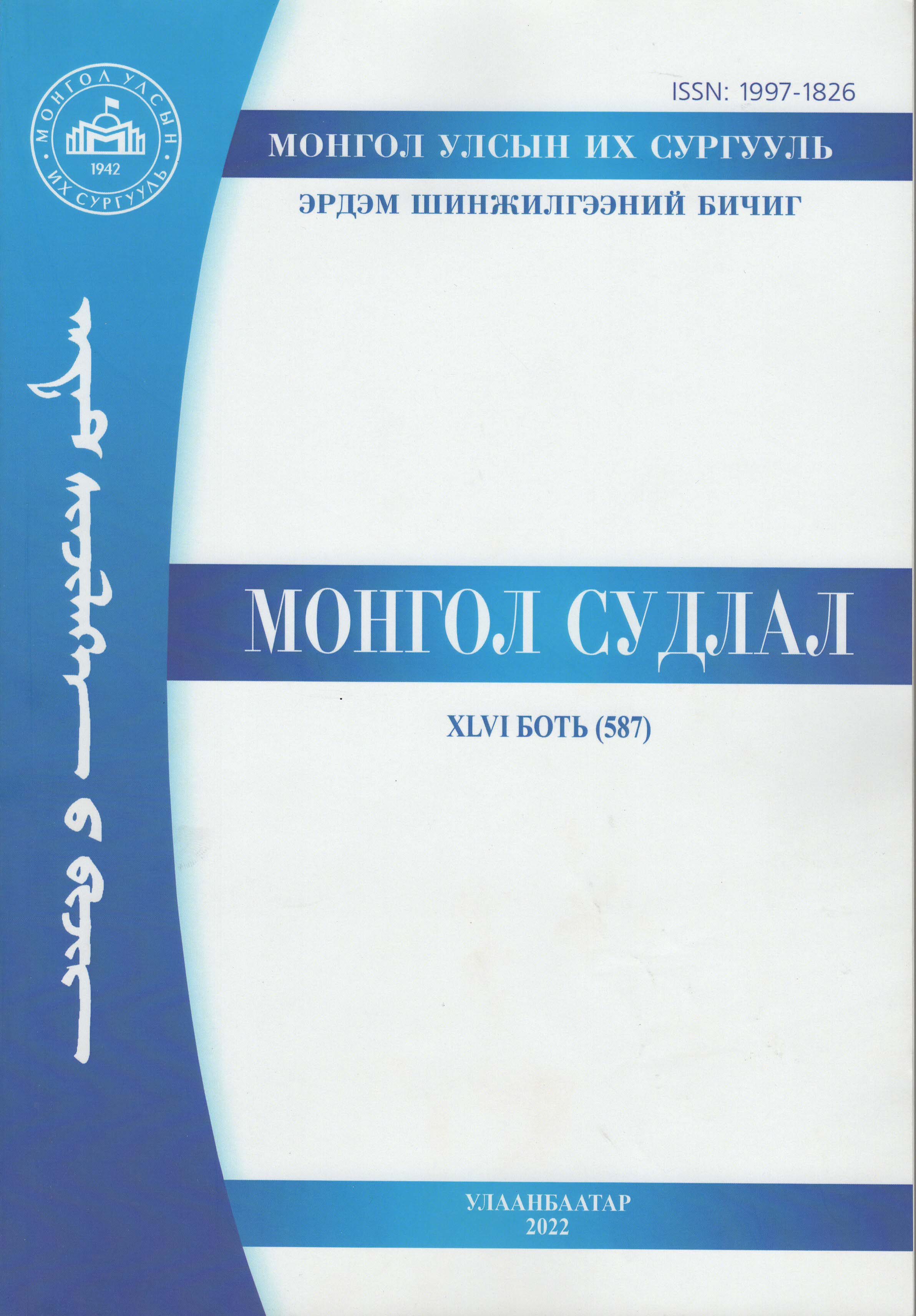Хуурч Бүрэнбаярын хуурдан хэлсэн “Гурван улсын үлгэр”-ийн эхийн харьцуулсан судалгаа
Keywords:
Tales of the Fiddle” (quγur-un üliger), Romance of the Three Kingdoms, Lexical componentsAbstract
https://doi.org/10.22353/ms20224609
Oral tales, which are known as “tales of the fiddle” (quγur-un üliger or bengаsün-ü üliger) derived in the eastern part of Inner Mongolia, are well-inherited to this day and have been the focus of many Mongolist scholars since long ago. Although many international scholars studied the tales of the fiddle from different perspectives, there is a lack of study on lexicological components in the tales of the fiddle.
In this paper, author chose the “Romance of the Three Kingdoms (in Mongolian: γurban ulus-un üliger; in Chinese:三国演义)” which was performed by Bürenbayar bard (quγurči, Lit: the fiddle player) as a research object. It was broadcasted by the Khulun Buir Radio Committee for a total of 62 hours length in August 1984. The author considered these materials as oral sources (transcriptions of audio recordings) for his research and conducted a comparative lexical analysis between the original
Chinese text and other Mongolian translations.
The Chinese source of the “Romance of the Three Kingdoms” contains 209 stanzas (192 poems, 2 hymns, 2 panegyrics, 2 eulogies, 10 songs, 1 children's tale), 3 of which correspond to the selected tale of the fiddle. In addition, the vocabulary items of the bards and some words of the local dialect were compared with the words used in two other translated versions of the "Romance of the Three Kingdoms", which were translated by Temget and D. Boldbaatar translated from Chinese into Mongolian.
In this article, the author not only summarizes the study of the “Romance of the Three Kingdoms” and its translation into Mongolian, but also compares Burenbayar's tale of the Fiddle with other Mongolian translations of the “Romance of the Three Kingdoms” in terms of lexical components and features of poetry, and it was determined that the tale of the fiddle originated from Temget's translation of the Romance of Three Kingdoms.





